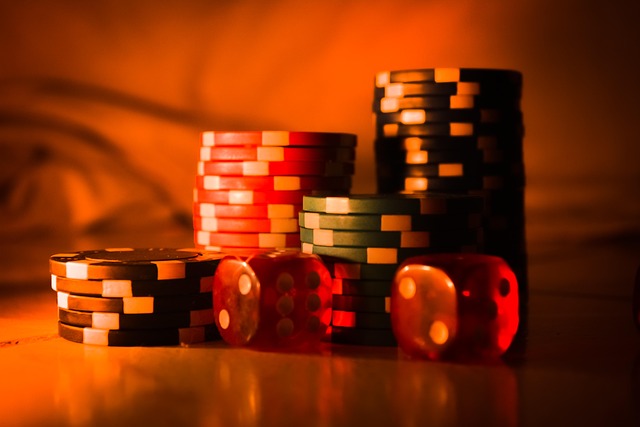The Basics: What Are Casino Odds?
Odds, at their core, are just a way of measuring chance. They tell you how likely something is to happen versus not happen. If the odds of winning a bet are 1 in 4, that means, on average, you’ll win once for every four tries. Simple enough.
But casinos don’t just deal with the raw math of chance—they tweak how much they pay you when you win. This is where the split shows up between “true odds” and “payout odds.”
True odds are the actual mathematical chances of an outcome. For example, hitting a single number on a roulette wheel with 38 possible numbers has true odds of 37 to 1.
Payout odds, on the other hand, are what the casino pays you when you win. In that same roulette example, the casino only pays 35 to 1. That 2-point gap? That’s built-in profit for the house.
This isn’t random—it’s the model. Every game in a casino is designed not to be fair, but to tilt ever so slightly in favor of the house. This small edge, multiplied across thousands of bets and players, guarantees the casino keeps making money.
So no, you’re not playing on a level field. And that’s the point.
What Is the House Edge?
The house edge is the built-in advantage the casino has over players in every game it offers. It’s not a trick or a scam—it’s simple math. Casinos design their games so that, over time, they win a small percentage of every bet placed. That percentage is the house edge.
Here’s a real-world example: take American roulette. There are 38 slots on the wheel (1–36, 0, and 00), but a straight-up bet on a single number pays 35 to 1. If the odds were truly fair, the payout would be 37 to 1. That gap—that missing payout—is where the casino makes its money. The house edge on American roulette? Around 5.26%.
In blackjack, the situation is different. With basic strategy, the house edge can get as low as 0.5%. Play poorly, and the edge climbs fast. Slots, on the other hand, are the black boxes of casino gaming. They’re fast, flashy, and fun—but they often carry a house edge of 5% to 15% or even higher, depending on the machine and the payout settings.
Bottom line: every game is tilted in favor of the house. The edge may be small, but it never takes a break. If you plan to play, knowing this is step one.
- Blackjack: When played with basic strategy, blackjack has some of the lowest house edges in the casino—often under 1%. The catch? You have to know how to play correctly. Guessing, winging it, or copying the loud guy at the next table doesn’t cut it. This is a game where skill matters. Count cards and manage bets smartly, and you can tilt the edge even lower.
- Roulette: Looks simple, but the wheel hides a difference that matters. American roulette has two green slots (0 and 00), which pushes the house edge to around 5.26%. European roulette has just one zero, cutting the edge closer to 2.7%. That little difference changes everything over time. If you’re set on spinning the wheel, find a European table.
- Slots: Flashy lights, loud sounds, massive jackpots—and the worst odds in the building. House edges vary massively, usually between 4% and 12%, depending on the machine and the casino. Payouts are volatile, meaning you might win big… or burn through cash fast. They’re fun but brutal. Never mistake them for a smart bet.
- Baccarat and Craps: Two table staples that offer both solid bets and total traps. In baccarat, betting on the banker holds a house edge of about 1.06%—one of the safest bets around. Avoid tie bets. In craps, stick to pass line, don’t pass, and odds bets. Fancy side bets? They’re mostly sucker bait. Don’t get distracted by the chaos—play the core, not the noise.
Why You Rarely Win Long-Term
Casinos aren’t guessing games. They’re businesses designed around predictable math. Every game on the floor—from blackjack to slots—has a built-in house edge. It might be small (like under 1% for some blackjack strategies) or massive (think certain slots), but over thousands of bets, that edge doesn’t budge. This is how casinos make consistent profits. Not by chasing whales, but by letting the math do the heavy lifting.
In the short term, players can and do win. That’s variance—random ups and downs that feel exciting. But luck swings both ways. Over time, outcomes average out, and the house edge reasserts itself. That’s why someone might hit it big on a Friday and give it all back over the next few weeks. The system isn’t broken—it’s just playing the long game.
Then there’s the illusion of streaks. Hot hands. Lucky machines. It’s fiction wrapped in patterns. Humans are wired to see meaning in randomness, but roulette wheels and decks of cards don’t have memory. Thinking your luck is due—or worse, that you’re on fire—is how a good night turns into a regrettable morning.
The takeaway is simple: the house doesn’t win every bet, but it wins enough. Your best move? Know the math, respect the edge, and treat every game like what it is—entertainment with a cost.
Smart Play vs. Gambling Myths
A lot of gamblers walk into casinos with a dream and a system. Most of those systems are broken from the jump.
One of the most popular—and misleading—is the Martingale. It sounds bulletproof: double your bet after every loss, and one win gets you back to even. But it ignores two basic truths: betting limits and limited bankrolls. Eventually, a losing streak hits, and you’re stuck playing table-max bets just to win a single unit. It’s not a strategy; it’s a roll of the dice dressed up as math.
Other so-called methods—like tracking roulette spins for patterns, or card counting in games that reshuffle every hand—don’t hold up in modern casinos. The house edge isn’t a trap you outsmart. It’s a built-in tax on every bet you make.
That said, there are ways to reduce how much you lose over time. Playing games with a lower house edge—like blackjack or baccarat—helps. So does learning basic strategy, managing your bankroll, and knowing when to walk away from a table. These won’t hand you an edge, but they will stretch your budget and improve your odds of leaving with something.
Bottom line: the house always has the advantage. Don’t chase a system that promises to beat it. Focus on minimizing risk, not chasing impossible wins.
Tracking Your Performance
If you’re serious about smarter gambling—not just chasing thrills—tracking your performance isn’t optional. It’s the clearest way to spot patterns, control your bankroll, and separate myth from math.
Keeping solid records forces you to stay honest. It’s easy to remember wins and gloss over losses, but the numbers don’t lie. Over time, your notes will tell you: which games drain you, which time slots you play longer (or better), and whether you’re improving—or just spinning wheels.
What should you log? Start basic: wins, losses, game type, and time spent per session. Then go deeper—was it slots or blackjack? What was your starting bankroll? How much did you really walk away with? Even tracking your mood can reveal trends in how emotion affects your decisions.
Bottom line: it’s not about being obsessive. It’s about being accountable. The goal is control, not perfection. And if you need tools to make it easier, check out Essential Tools for Tracking Your Casino Game Performance.
The Bottom Line: Play with Eyes Open
Let’s be clear: the house always has the edge. That’s not defeatist—it’s just math. Every game on the floor is tilted ever so slightly in the casino’s favor. You might get lucky short-term, but over time, the odds catch up. Still, that doesn’t mean you can’t play smarter.
Start with a budget. Know how much you’re comfortable losing before even walking in the door (or logging on). Don’t chase losses. If you’re on tilt, step away—emotion is a bankroll killer. Pick games where the edge is lower. Blackjack, certain craps bets, and baccarat give you better odds if you play them right. Avoid high-volatility slots and gimmicky side bets—they’re fun, but expensive in the long run.
Above all, treat gambling for what it is: entertainment. Casinos aren’t investment strategies or side hustles. Think of your money like spending on a night out. If you leave with winnings, great. If not? You paid for the experience. Play sharp, don’t kid yourself, and enjoy the ride.



